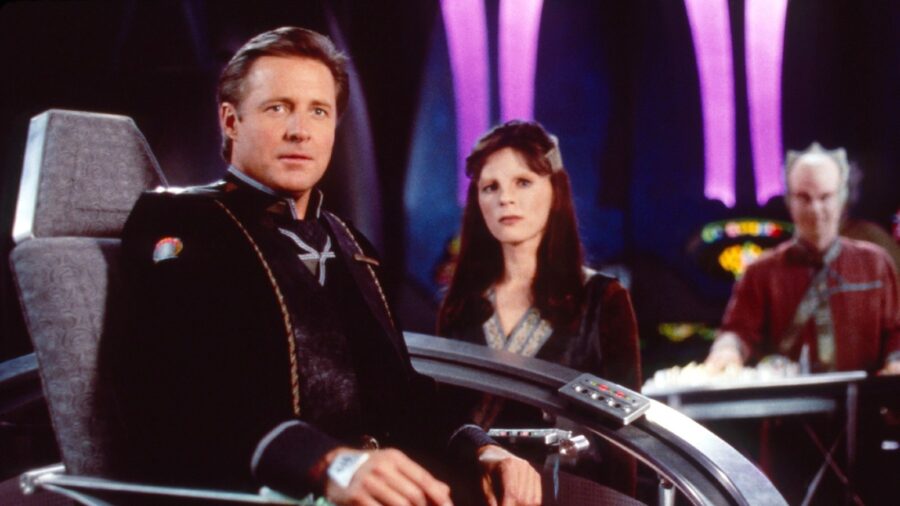The Important Lesson Lost Should Have Learned From Babylon 5

Lost and Babylon 5 could not be more different, and it has nothing to do with how one is a space opera epic filled with aliens and the other is a mystery box story that remains (mostly) in one location. Instead, they represent two very different writing styles and philosophies, as famously, J. Michael Straczynski (JMS) wrote out the entire story for Babylon 5 before the pilot was filmed, while J.J. Abrams and Damon Lindelof had no idea where Lost was going.
Each method led to a degree of success, but what the Lost writing team should have done was to at least employ the JMS Babylon 5 strategy of “trap doors” for every character as a way for them to be written off without impacting the overall story.
Babylon 5 Switched Leads

Lost went through characters at a rapid-fire pace for a network series, but Babylon 5 managed to pull off the risky maneuver of swapping leads between Season 1 and Season 2. Michael O’Hare, the actor behind Jeffrey Sinclair, had to leave the series, as we found out years later, for mental health reasons, which resulted in Bruce Boxleitner stepping in as John Sheridan. JMS was able to adjust his story from Sinclair to Sheridan by using one of the trap doors he built into the story, which is time, which meant having the original commander sent to Minbari as an Ambassador.
Lost Got Lucky

When the production of Lost was thrown into temporary disarray during Season 2 following Michelle Rodriguez’s arrest for DUI, instead of using a Babylon 5-style trap door to remove Ana Lucia Cortez from the story, the writers stuck to their plan and had her shockingly executed in the season finale. It’s hard to remember now, but at the time, keeping the Fast and Furious star on board was considered to be controversial.
However, in this situation, she was always planned for one season, so it ultimately worked out. With a little planning, the events of the Season 2 finale could have transpired, just with a different victim.
A Senseless Death

Later, Lost was thrown into disarray again when star Adewale Akinnuoye-Agbaje asked, for personal reasons, that his character, Mr. Eko, be killed off, and again, there was no Babylon 5 trap door in place for this situation. Season 3’s “The Cost of Living” has Mr. Eko meet his end at the hands of the Smoke Monster in one of the most senseless deaths of the series since there was no reason ever given. With no trap door in place, fans have been forced to speculate as to why this death took place, but the truth is, there is no story reason for it, only poor planning behind the scenes.
The Trap Door That Wasn’t

There is a Lost example of a trap door that really wasn’t, as like Babylon 5’s later seasons, the crew in Hawaii had to deal with approaching an end game that didn’t require everyone’s involvement. That’s why they brutally killed Elizabeth Mitchell’s Juliet using a deep, dark hole and a hydrogen bomb, but this led to fans immediately speculating that she died because Mitchell was starring in the new series V. For years, this was accepted knowledge among fans, but the timing was actually backward, and Mitchell got the offer for V because Juliet was going to die, and the network wanted to keep her around.
So while this wasn’t actually a trap door, Lost’s lack of planning is still felt here compared to the intricate narrative of Babylon 5, as Elizabeth Mitchell has said in interviews that the producers had no idea what to do with Juliet at first, and left her past as a mystery not to be sneaky, but because they had no idea what it was.
Babylon 5 Raised The Bar

Both Lost and Babylon 5 were successful, and while the former became far more popular, the latter is remembered fondly today, all thanks to being the result of one man’s carefully crafted vision. Multiple showrunners have admitted over the last 30 years that they have employed the JMS concept of trap doors, but as J.J. Abrams proved with his Star Wars films, he wasn’t one of them. Shock deaths work in the short term, but without a structured story, they ultimately mean nothing.












